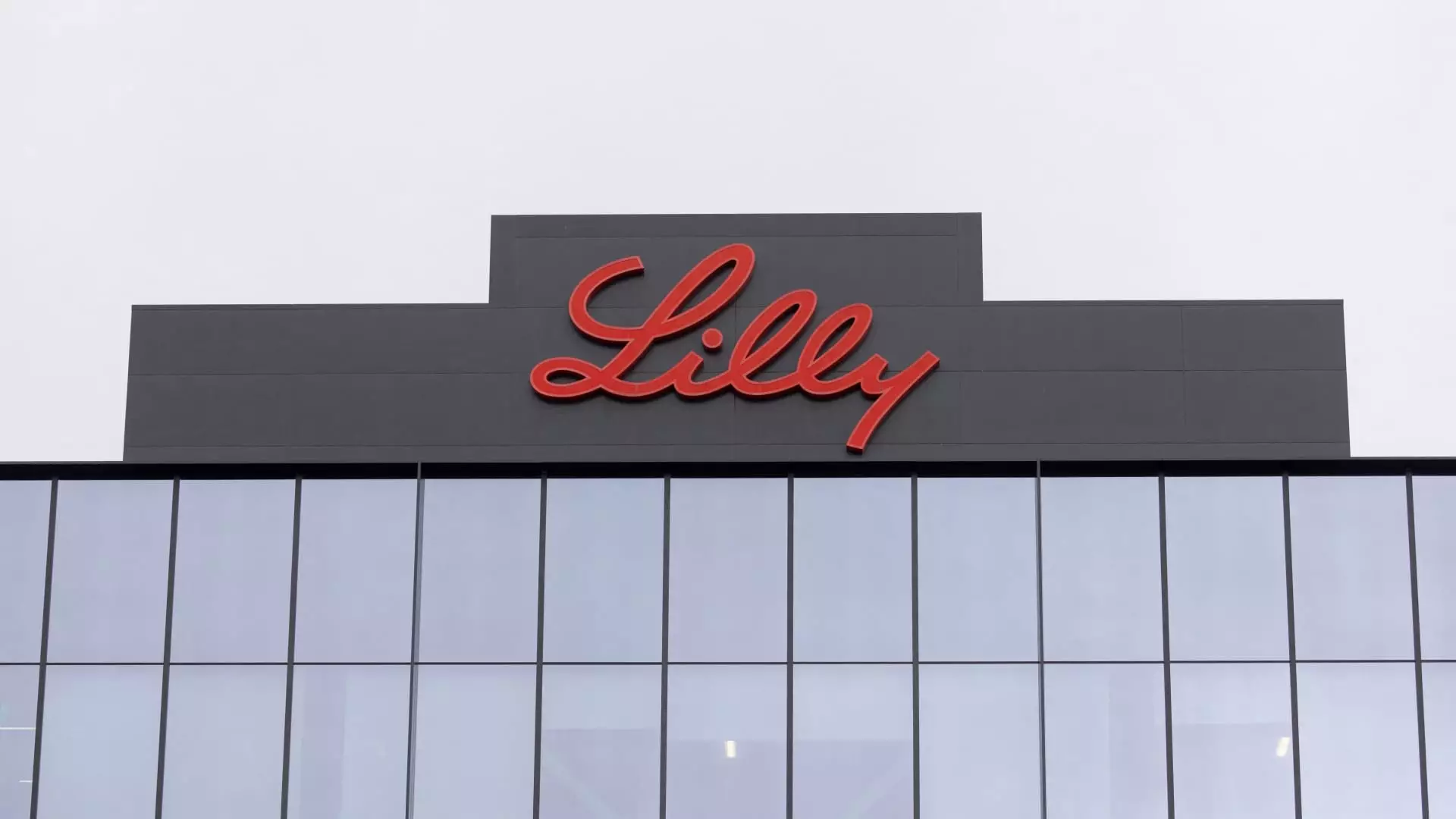The recent announcement from President Donald Trump regarding a pause on steep tariff rates for several countries has undoubtedly stirred the pharmaceutical industry, yet the implications of his trade strategies deserve a critical examination. While shares of major drugmakers initially saw some recovery following Trump’s declaration, this sentiment is fleeting and deceptive. The core issue at hand isn’t simply about stock prices fluctuating; it’s an intricate web of risks that might ultimately do more harm than good to the very foundations of American healthcare.
On one hand, lowering tariffs across numerous sectors appears to provide a temporary gasping breath for pharmaceutical giants like Eli Lilly and Pfizer. Their stock prices saw small gains after Trump’s announcement, bouncing back from the initial plunge caused by fears of sector-specific tariffs. However, what’s troubling is that this relief comes amidst a climate where Trump is fixated on penalizing China with tax increases as high as 125% on pharmaceuticals. This contradictory stance creates uncertainty, which is not a commodity that investors cherish.
The Illusion of Incentives for Domestic Manufacturing
The claim that tariffs will coax drug companies into moving their manufacturing back to the United States amounts to nothing more than political theater. In a day where technology and human resources are as global as the internet, incentivizing a return to domestic production is fraught with challenges. The pharmaceutical industry has significantly outsourced manufacturing processes, offshoring fundamental production to countries like China and India where costs are lower.
Analysts such as BMO Capital Markets’ Evan Seigerman highlight the complexities involved in the reshoring process— it cannot be rushed or hastily simplified to merely “moving jobs back.” The intricate chain of creating pharmaceuticals involves numerous steps, many of which require specialized knowledge and resources that are not readily available in the U.S. The idea that a mere shift in tariff policy can rectify decades of offshoring is naive at best and reckless at worst.
Patients Pay the Price for Political Posturing
The repercussions of these trade policies aren’t confined solely to the pockets of pharmaceutical companies. A coalition of House Democrats recently cautioned that the repercussions of the ongoing trade war could be devastating for American patients. They raised a clear and pressing concern—disruption of medical supply chains could lead to life-threatening delays in treatments or compel healthcare providers to make perilous decisions regarding rationing resources.
Given that U.S. imports of pharmaceuticals reached nearly $213 billion in last year alone, it’s evident that reliance on international suppliers is high. When tariffs are imposed, these costs can be passed on to consumers, leading to increased out-of-pocket expenses for vital medications. This isn’t just a financial issue; it has profound implications for public health and the wellness of American citizens.
Hidden Costs: Research and Development Under Siege
While the Trump administration touts an increase in domestic production as the centerpiece of its policy, the reality is that these tariffs could ultimately detract from one of the most dynamic segments of the economy: research and development (R&D). Pharmaceutical companies need to invest significantly in advancements to remain competitive and innovate new treatments. However, as Eli Lilly’s CEO, Dave Ricks, candidly expressed, trade-offs within these companies will likely come at the cost of R&D investments, which could jeopardize future drug development.
By placing undue financial strain on companies already grappling with a complicated landscape, there’s a danger that innovation will take a backseat to immediate financial concerns. The paradox is blatant; policymakers seeking to bolster the pharmaceutical industry may inadvertently stifle the very innovation that serves as its lifeblood.
Corporate Responsibility vs. Political Strategy
With drugmakers making substantial commitments to increase U.S.-based manufacturing—Eli Lilly alone announced $27 billion in domestic investments—there’s a palpable sense of frustration about an ever-shifting political arena that continues to sow discord. As companies tread carefully to navigate the whims of tariff policies, the question looms large: how can they fulfill their obligations to shareholders while also ensuring they contribute to the public good?
Rather than fostering an environment of stability, the current strategy appears reactionary. It’s crucial for policymakers to recognize that health and well-being cannot be merely pawns in a larger political game. Drug manufacturers deserve a coherent, supportive framework that allows them to flourish while also safeguarding the health of American citizens.
As these titans of industry face a turbulent future, one thing becomes starkly clear: the intersection of healthcare and politics in the era of trade wars poses risks that could resonate through generations. The stakes could not be higher as the health of the nation hangs in the balance.

